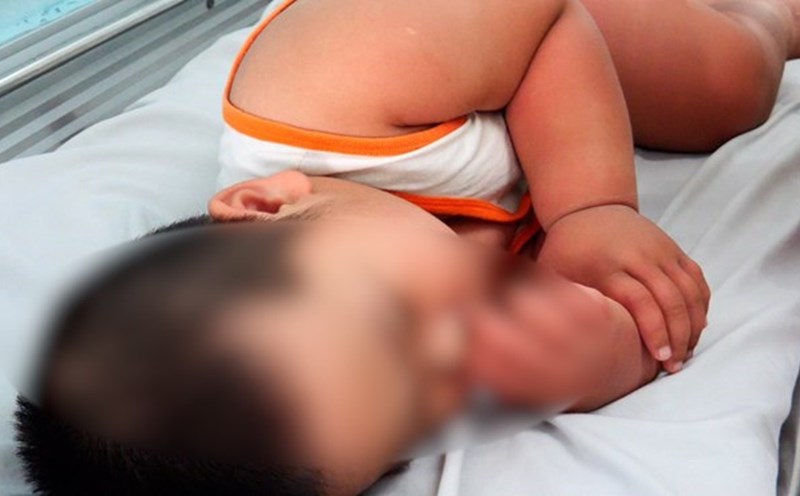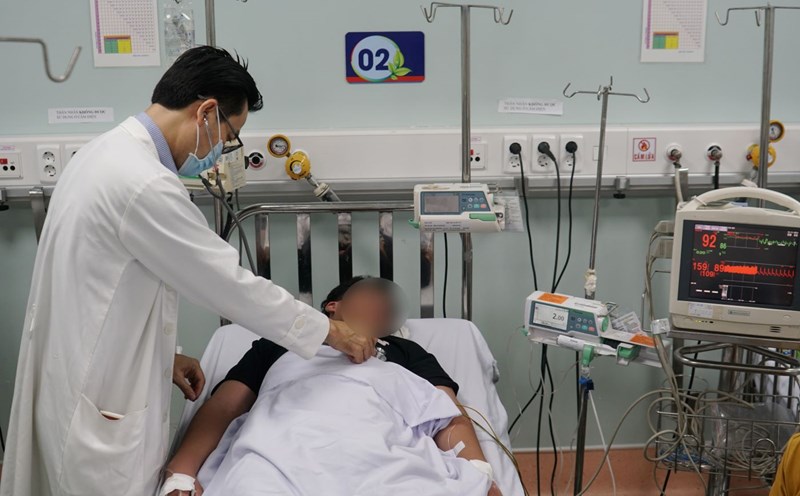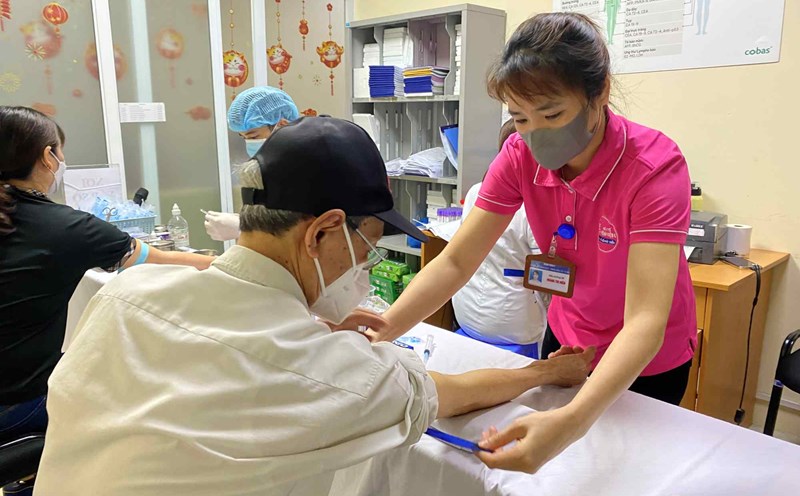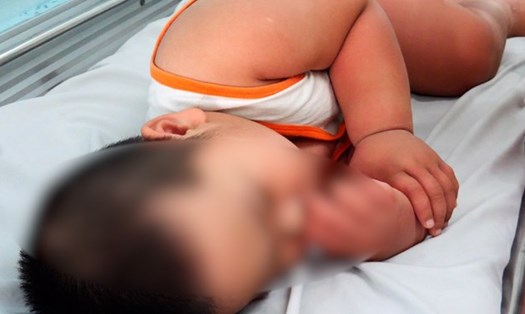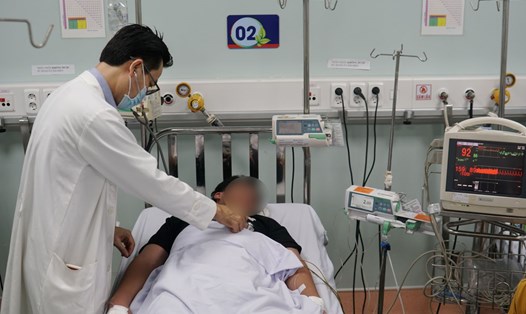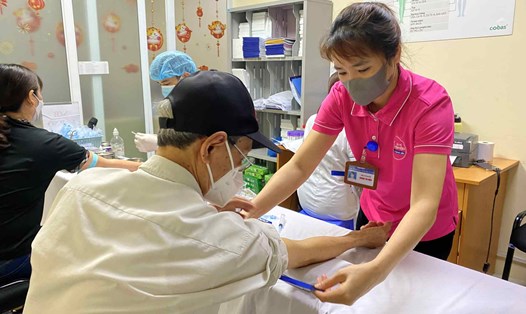Patient B.N.M.K. (4 years old, male, residing in Tra On, Vinh Long, temporarily residing in Tan Phu district, Ho Chi Minh City), had a high fever for 2 days at home.
The family used fever-reducing medicine but the condition did not improve. On the third day, the child was taken to a local hospital, diagnosed with dengue fever and treated as an outpatient.
After returning home, the child continued to have a fever, but the fevers became less frequent, accompanied by symptoms of vomiting and diarrhea. The family took the child back to the local hospital in critical condition: no pulse, no blood pressure. The child was diagnosed with severe dengue shock syndrome (SDS) (stage N3), and was given anti-shock IV fluids according to the protocol before being transferred to the City Children's Hospital.
According to Dr. Nguyen Minh Tien - Deputy Director of the City Children's Hospital, when receiving the child, the doctors noted a weak pulse, cold limbs... The child was diagnosed with severe dengue fever and was immediately given anti-shock fluids according to the protocol. However, the child's condition became complicated: prolonged shock, blood clotting disorder, gastrointestinal bleeding, respiratory failure.
The child was treated with active anti-shock, intubated for mechanical ventilation, given blood transfusions, and treated for complications such as severe liver and kidney damage.
Dr. Nguyen Minh Tien said: “The disease progression is very complicated with multiple organ dysfunction, sometimes improving, sometimes worsening. The child also showed signs of hospital-acquired infection, and was treated with supportive treatment for the organs, combined with the use of broad-spectrum antibiotics.”
After nearly 3 weeks of treatment with 6 consecutive dialysis sessions and measures to support organ function, the child's condition gradually improved. The child began to urinate well, liver and kidney function returned to normal, was taken off the ventilator, and was completely conscious.
“Parents need to actively kill mosquitoes and larvae, sleep under mosquito nets, and closely monitor their children's symptoms. If the child has a high fever for more than 2 days or shows any unusual signs, take the child to a medical facility promptly,” Dr. Minh Tien emphasized.
As of week 46, Ho Chi Minh City recorded 12,013 dengue fever cases, down 27.8% over the same period in 2023 (16,636 cases) and is the province and city with the highest number of dengue fever cases in the Southern region, accounting for 25.0% of the total number of cases in the region.
Although the number of dengue fever cases decreased compared to the same period in 2023, from week 37 to now, the number of cases in the city has tended to increase continuously every week, with 1 death due to dengue fever recorded.
Including the Southern region, the number of cases this year is lower than last year.
According to monitoring data from the Pasteur Institute of Ho Chi Minh City, the cumulative number of dengue fever cases from the beginning of the year to week 45/2024 in the Southern region was 44,980, down 26.4% over the same period in 2023.

